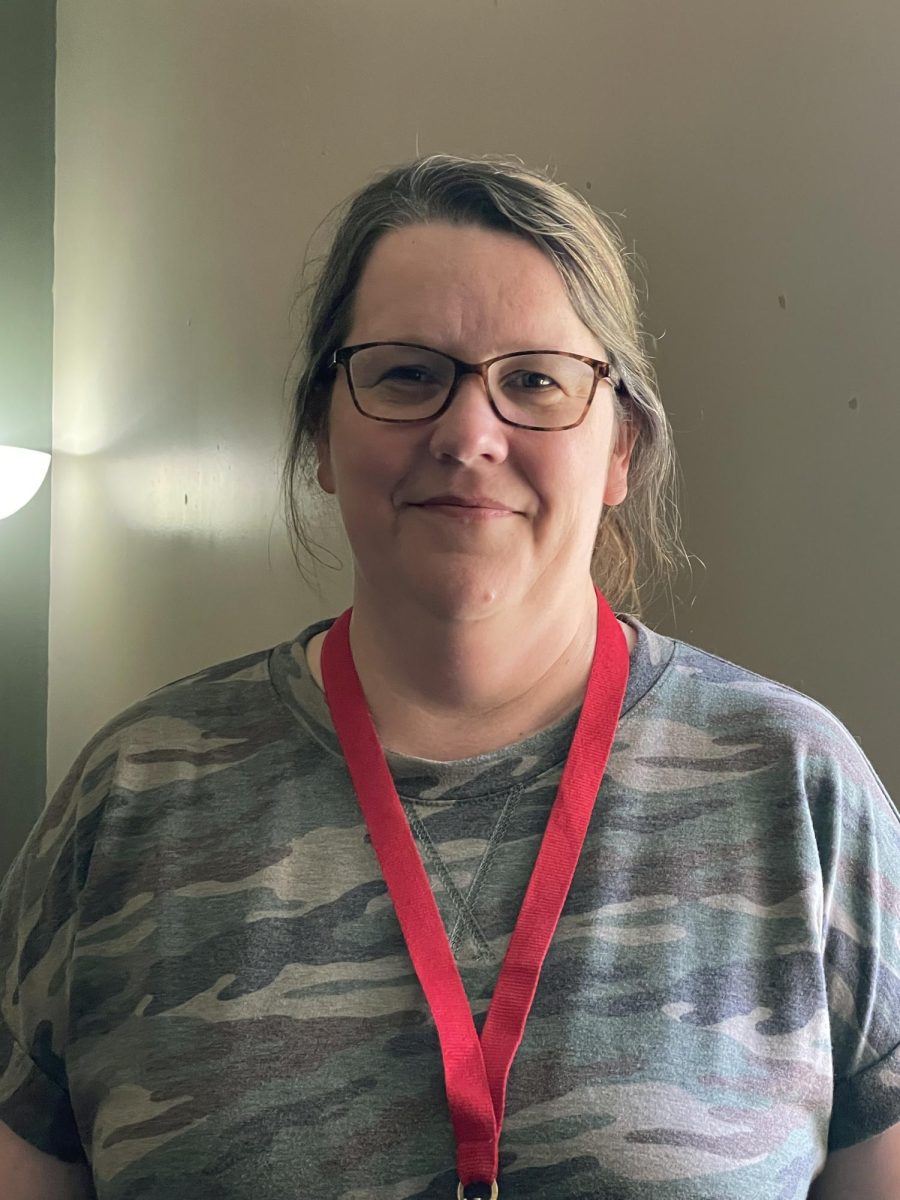Screentime: Good or Bad?
December 22, 2022
NATASHA LITTLE: This was Natasha Little.
LAUREL LATIMER: And Laurel Latimer.
NATASHA LITTLE: For Eagle Ear TV.
[MUSIC PLAYING]
It could be hard getting off your phone nowadays, especially with all the social media. Today, we’re going to be talking with Todd Mincks, the virtual counselor at Nixa High School about how social media affects our brains.
[MUSIC PLAYING]
LAUREL LATIMER: So how does it affect self image?
TODD MINCKS: Well, there’s a lot of studies about that. And let me just say up front, like there are experts on this out there and I’m not necessarily one of them although I have gone to some services and some seminars and that kind of stuff. So how does too much screen time impact self image? Is that what you’re saying?
LAUREL LATIMER: Yes, like the things you see online.
TODD MINCKS: Yeah, I think, generally speaking, the consensus is that it’s negative like it hurts us. Everything’s more perfect on social media and I’m going to all focus on social media in particular in terms of self-image. We’re always comparing ourselves to someone else’s profile, to their experiences. Generally, the things that get posted are artificial in a sense that everything looks perfect because that’s what we try to do with our posts.
LAUREL LATIMER: Yeah.
TODD MINCKS: We want a good perfect looking picture that may or may not be filtered somehow. And we want to describe the experience or the food we’re having or whatever is perfect. And no one lives up to that. When you’re looking at that, when you’re reading that, your self-image is just like, well, that’s better than my life or that’s better than what I’ve experienced. And I think that’s for everyone.
NATASH LITTLE: So as a virtual counselor for the school, how do you think having being online or on a screen all the time affects kids’ minds?
TODD MINCKS: Yeah, I mean, generally speaking, again there are some downsides to it. And everything from increased anxiety, depression, to sore necks, to– if you’re on your phone too much, to sleep problems. Just the overstimulation that can lead to sleep problems. And when we talk about screen time, it’s important to remember too, we’re talking about everything from computers to phones to television to whatever has a screen, right? And so a lot of people will do, they’ll work on their computer for hours or they’ll look at their phone for hours and then they go to take a break, and what do they do? They turn on the television, which is just another screen. And so there’s a lot of evidence to support some negative aspects coming from that.
LAUREL LATIMER: This kind of goes on with hers about, does it affect the learning process, being online?
TODD MINCKS: Well, I want to- I mean, I don’t want to be overly negative like this is the world we live in and the options that virtual learning, which is my field obviously, the options that it provides students, it’s amazing. So does it impact the learning, the quality of the learning? I would say no, not necessarily. Like some of my students are taking– some of my best students are taking AB Statistics, for example, online and they’re learning a lot and they’re doing very well. Where it can impact is if you’re a full-time virtual learner and you’re spending too much time in front of screens, right? And so a full-time virtual schedule really should take someone if they have 7 classes virtually. You should probably be spending five to six hours anyway working on work. And so that is a lot of screen time for– especially for a high school age student through the day. So can it have a negative impact? Yes, for all the reasons we’re talking about in terms of too much screen time. But is there positive stuff to it as well? Yes, I think so.
LAUREL LATIMER: Building on to that question. Do you think that having a good profile like online could help kids get into schools or affect how their teachers think of them?
TODD MINCKS: Yeah, I think clearly, colleges, employers are checking social media status. I mean, that’s one of the ways they’re doing background checks on their applicants and people that want to associate with them. So absolutely can have an impact. Yeah.
LAUREL LATIMER: I heard one saying a long time ago. And it was like, if it’s there, it’s there forever. People have seen it and it’s in your reputation so it affects your future and how people–
TODD MINCKS: Do you know, a few like I’ve- again, old guy, so Facebook. Like I’ve posted pictures on Facebook from 15 years ago. Well, they’re still there like I forget all about them but I’m like, oh, someone creeping on me if they wanted to go back 50 years and look at my pictures there. Well, there they are. And the other thing we don’t think about a lot of times is if you have friends who take a picture of you and post something and then tag you in it, well, that can be tracked down as well. And it may not be something you were comfortable with being posted but it’s still out there.
So it’s a whole – I mean, you guys know that. Your generation knows all this stuff better than I do. But I think it’s really important to remember that there’s truth to that. Once it’s posted, it’s just out there. It can be manipulated or looked at in any way.
STUDENT: That is true.
LAUREL LATIMER: Do you think that just like being on screens all the time and not having that interaction with people could affect social abilities?
TODD MINCKS: Yeah, I’ve kind of hinted at that. We see as a counselor. I see depression, anxiety has just gone through the roof over the last 10 years. Totally changed in a bad way in our society like this increase. And so as a counselor, I’m going, why? What’s– where is this coming from? Because I didn’t used to be, like there’s always been students I’ve dealt with who were suicidal or who had anxiety but they used to be, statistically speaking, a much smaller percentage of the kids I was dealing with.
And so when I asked the question, why? When anyone asked the questions why, I think you have to look at what has changed in our society. And there’s no denying that the increase of social media, the increase of screen time, the increase of just that. All that stuff wrapped up together is one of the things that’s really changed in our society. So I can’t help but put a correlation there. So to answer your question, yes, I think this stuff can be detrimental to our well-being if we aren’t careful.
And again, technology is awesome. But what happens is the technology moves faster than we do as a society. In other words, we are slower to adapt to the technology and figure out how to deal with it correctly. Then the technology itself, it just keeps coming at us. And we’re like, we don’t know what to do with this. So when social media first started happening, we had no idea that things that we post might be out there forever. Or things we post might be looked at by a boss or a college or whatever. And so we’re slow to adapt. So I think technology is great but we’ve got to figure out a way to balance.
[MUSIC PLAYING]
LAUREL LATIMER: For Eagle Air TV, this is Laurel Latimer.
NATASHA LITTLE: And Natasha Little.
LAUREL LATIMER: Signing off.
[MUSIC PLAYING]






